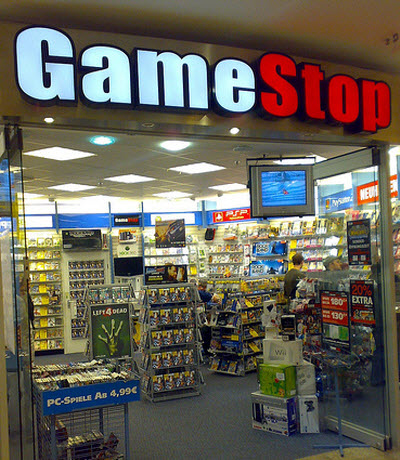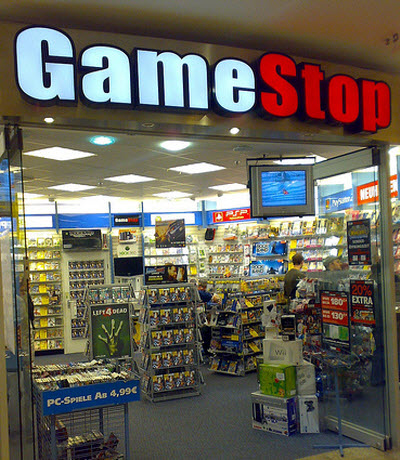
GamesStop, the world’s biggest video game retailer, is going through a chief executive change as the digital distribution of games is coming on strong.
The company announced today that Dan DeMatteo will give up the CEO title and become executive chairman while J. Paul Raines becomes CEO. They will lead the company during an interesting era, as GameStop has 6,486 retail stores selling video games at a time when the market is starting a shift toward digital distribution.
GameStop is still opening stores at a rate of 400 per year, even as rivals such as OnLive launch online game services aimed at cutting out the retailers and letting gamers enjoy games instantly via web-based distribution.
GameStop’s executives have said they have examined the landscape and concluded that the shift toward digital won’t happen nearly as fast as it did with movies or music, partly because high-end video games require a long time to download. Those times are getting shorter as faster broadband and better distribution technology arrives.
GameStop has its own GameStop Digital Ventures unit to invest in digital solutions, and it is starting both a rewards program and an online game strategy of its own that takes advantage of its physical stores to market online games. In March, GameStop launched its own free-to-play online game, Legends of Zork.
DeMatteo takes the chairmanship from Dick Fontaine, co-founder of the Grapevine, Texas-based company. Fontaine will retain the role of chairman international, guiding the company’s overseas strategy. DeMatteo will handle the growth of retail stores and oversee the digital initiative, while Raines will focus on the current business. Raines had been chief operating officer since 2008.
Other promotions include Tony D. Bartel, who was formerly executive vice president and will now be president. That role hasn’t been filled since the resignation of Steve Morgan in 2008. Robert A. Lloyd goes from senior vice president and acting interim chief financial officer to chief financial officer and executive vice president.
It will be interesting to see how GameStop handles the digital transition. Meanwhile, the company has angered game publishers with its big sales of used games, which generate a lot of profit for GameStop but yield nothing for game creators. Game publishers such as Electronic Arts have launched ways to penalize buyers of used games by charging them $10 to engage in online play.


